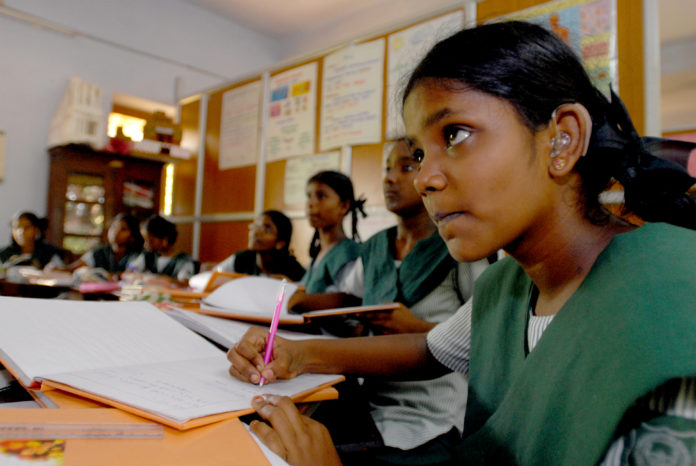Scientists using artificial intelligence – with data from hundreds of children who struggle at school, identified clusters of learning difficulties which did not match the previous diagnosis the children had been given.
The researchers from the Medical Research Council (MRC) Cognition and Brain Sciences Unit at the University of Cambridge say this reinforces the need for children to receive detailed assessments of their cognitive skills to identify the best type of support.
The study, published in Developmental Science, recruited 550 children who were referred to a clinic – the Centre for Attention Learning and Memory – because they were struggling at school.
The scientists say that much of the previous research into learning difficulties has focussed on children who had already been given a particular diagnosis, such as attention deficit hyperactivity disorder (ADHD), an autism spectrum disorder, or dyslexia. By including children with all difficulties regardless of diagnosis, this study better captured the range of difficulties within, and overlap between, the diagnostic categories.
One child’s ADHD is often not like another child’s ADHD
Dr Duncan Astle from the MRC Cognition and Brain Sciences Unit at the University of Cambridge, who led the study said: “Receiving a diagnosis is an important landmark for parents and children with learning difficulties, which recognises the child’s difficulties and helps them to access support. But parents and professionals working with these children every day see that neat labels don’t capture their individual difficulties – for example one child’s ADHD is often not like another child’s ADHD.”
“Our study is the first of its kind to apply machine learning to a broad spectrum of hundreds of struggling learners.”
The team did this by supplying the computer algorithm with lots of cognitive testing data from each child, including measures of listening skills, spatial reasoning, problem solving, vocabulary, and memory. Based on these data, the algorithm suggested that the children best fit into four clusters of difficulties.
These clusters aligned closely with other data on the children, such as the parents’ reports of their communication difficulties, and educational data on reading and maths. But there was no correspondence with their previous diagnoses. To check if these groupings corresponded to biological differences, the groups were checked against MRI brain scans from 184 of the children. The groupings mirrored patterns in connectivity within parts of the children’s brains, suggesting that that the machine learning was identifying differences that partly reflect underlying biology.
Two of the four groupings identified were: difficulties with working memory skills, and difficulties with processing sounds in words.
Difficulties with working memory – the short-term retention and manipulation of information – have been linked with struggling with maths and with tasks such as following lists. Difficulties in processing the sounds in words, called phonological skills, has been linked with struggling with reading.
Dr Astle said: “Past research that’s selected children with poor reading skills has shown a tight link between struggling with reading and problems with processing sounds in words. But by looking at children with a broad range of difficulties we found unexpectedly that many children with difficulties with processing sounds in words don’t just have problems with reading – they also have problems with maths.”
“As researchers studying learning difficulties, we need to move beyond the diagnostic label and we hope this study will assist with developing better interventions that more specifically target children’s individual cognitive difficulties.”
Dr Joni Holmes, from the MRC Cognition and Brain Sciences Unit at the University of Cambridge, who was senior author on the study said: “Our work suggests that children who are finding the same subjects difficult could be struggling for very different reasons, which has important implications for selecting appropriate interventions.”
The other two clusters identified were: children with broad cognitive difficulties in many areas, and children with typical cognitive test results for their age. The researchers noted that the children in the grouping that had cognitive test results that were typical for their age may still have had other difficulties that were affecting their schooling, such as behavioural difficulties, which had not been included in the machine learning.
Dr Joanna Latimer, Head of Neurosciences and Mental Health at the MRC, said: “These are interesting, early-stage findings which begin to investigate how we can apply new technologies, such as machine learning, to better understand brain function. The MRC funds research into the role of complex networks in the brain to help develop better ways to support children with learning difficulties.”


